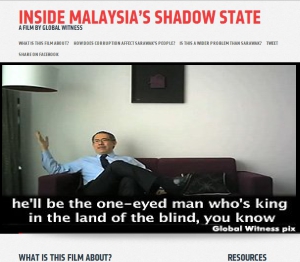 Sixty five years ago, the First-Past-The-Post (FPTP) electoral system was first introduced to Malaysia with Malaya’s first municipal election in George Town. The choice was not surprising – like most former British colonies, we just followed the footstep of our colonial master.
Sixty five years ago, the First-Past-The-Post (FPTP) electoral system was first introduced to Malaysia with Malaya’s first municipal election in George Town. The choice was not surprising – like most former British colonies, we just followed the footstep of our colonial master.
But does FPTP suit us?
Sixty five years later, a conference is finally held – most fittingly in George Town – to revisit the electoral system. The organisers are Penang Women Development Corporation and Penang Institute.
The aim of this conference is to advance women’s representation in electoral politics. Malaysia’s record is appalling – only 10.8% of parliamentarians and 11.5% of state assemblypersons are women.
As of June 1, 2016, we rank 150th out of 191 countries/regions surveyed by the International Parliamentary Union. http://www.ipu.org/wmn-e/arc/classif010616.htm
Amongst Southeast Asian countries with elections, we were behind Timor Leste (38.5%, 20th), Singapore (23.8%, 69th), Cambodia (20.3%, 86th) and Indonesia (17.1%, 105th). Barring Thailand which is in transition and the Philippines for which data is not available, we are only better than Myanmar (9.9%, 153rd).
What may explain our backwardness?
No, not socio-economic development – except Singapore, all the countries that do better than us are also poorer than us.
No, not religion or culture. Our neighbours with more balanced gender representation come have different dominant religions/cultures: Catholicism, Confucianism, Buddhism and Islam.
The best explanatory factor would be electoral system. Timor Leste, Indonesia and Cambodia uses List-Proportional Representation (List-PR) system while most of Singapore’s parliamentarians come from Group Representation Constituencies (GRCs).
List-PR and GRCs have two common features: every constituency is to elect a few lawmakers and voters are actually voting for parties instead of candidates.
This means that parties can easily assign at least one woman candidate in a constituency.
Both Indonesia and Timor-Leste actually set a women candidate quota for their political parties: 30% in Indonesia and 1 out of every 3 in Timor-Leste.
Singapore imposes a minority quota but no gender quota, but in practice at least one woman will be nominated in GRCs by parties.
This is in sharp contrast with FPTP, whereby a party can only nominate one candidate in one constituency. To increase women’s representation means some of the party’s safe seats need to be given to women candidates.
Clearly, this is likely objected by the male incumbents and sometimes also the constituents.
So, should we opt for List-PR or GRC to increase women’s representation?
These two electoral systems actually differ in one major aspect – proportionality.
Under List-PR, seats in a constituency are divided to contesting parties based on their respective vote share, producing a more proportional parliament.
In contrast, all seats in a GRC will be taken by the winning party, leaving voters who support other parties unrepresented. This can easily result in a super-super parliamentary majority for the ruling party, as in Singapore.
So, if we want to both increase women’s representation and keep multi-party competition alive, we should opt for List-PR or some hybrids of FPTP and List-PR.
Yes, we can change our electoral system, and even pick and mix different systems to make it work for us – not only for improving women’s representation but possibly also changing the dynamic of party competition.
For example, we may want to test out if proportional representation (PR) systems would reduce the impetus for the calls of ethno-religious unity, as changes in such systems are normally more incremental than drastic.
It’s time that we stop taking our institutional arrangement as cast in stone. If they do not benefit us, we should change or modify them to better suit our interests.
Remember Albert Einstein’s famous definition for insanity: “Doing the same thing over and over again and expecting different results.”
We should not limit our vision to changing the government. Changing the way government comes into and stays on power is perhaps more important.
Wong Chin Huat






















Leave a comment